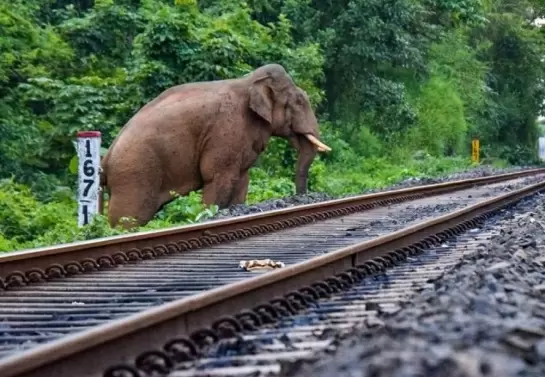International Financial Services Centre: Much needed for India (Column: Behind Infra Lines)
13-July-2019
In a rapidly transforming global economic landscape in the face of Brexit, trade wars, debates around central bank policy and India emerging as a major economy in aggregate terms, a focus on creating a financial hub in India is both required and commendable. The Union Budget 2019 has provided incentives to ensure a renewed focus on the International Financial Services Centre (IFSC) at GIFT City, Gandhinagar. Tax measures to boost investor interest is timely and a good start.
An asset-financing hub can help fund critical sectors in the economy. One such sector that can benefit from an Indian financial centre is aviation. Through a financial hub not only will India benefit from the asset usage from a consumption point of view but will also help through creating a financing ecosystem that creates value through a host of interlinked industries in the IFSC.
Currently, most asset financing, such as airline financing, is done outside India in other financial hubs that have long attracted capital. But as India continues to become a more significant user of aviation infrastructure, a renewed focus on utilising IFSC to bring "home" the financing aspect of the asset will be vital. Such a measure will deliver the above-mentioned twin objectives of consumer access to assets and capital access for business.
The need to push the IFSC as an asset-financing hub assumes even greater importance, as one factors in the growth that Asia will see in asset demand. Taking the aviation sector as an example, one can see why a centralised financial hub in India assumes great importance. A report by IATA in October 2018 found that more than half of the total number of new passengers globally over the next twenty years will be from Asia. Additionally, by 2030, China, India and Indonesia will comprise three of the top four aviation markets. The financial hub, such as IFSC truly needs to capture a significant component of the financing market as consumption trends such as aviation market growth gather further momentum in Asia.
Indian policymakers and businesses must view the IFSC as a "centralised infrastructure ecosystem" as opposed to a single point of financing availability. Utilising the aviation financing example from above to illustrate this point would imply that the IFSC must not only look to capture the asset-financing component of the aviation market growth but eventually become a hub for aviation asset management, aviation insurance and allied industries.
Mainly, as Indian consumers fly more, the aim must be for the IFSC to provide an avenue for centralised financial infrastructure hub that can truly cater to the needs of a growing economy. An increasing volume of passengers will imply a more significant number of airports and an increase in the size of airports. Therefore, financing planes, managing the assets, providing insurance to both air carriers and airport operators will all be business lines that will witness significant growth.
The inter-linkages also create the ecosystem in terms of services, human capital and ancillary industries that are so essential for long-run success of a financial centre such as the IFSC. The need to cater to a multitude of needs, as mentioned above, will create the demand for high-quality human capital and boost the services industry relating to finance, information technology, legal and accounting needs. The creation of a large service industry base will help fund the IFSC hub better and create a network effect that will allow top-quality human capital to cater to the diverse industries bound by a common financial centre.
Besides aviation, with the increased financialisation of the economy and the need for higher amounts of capital at optimal funding levels, the IFSC can deliver significant value for a variety of industries related to financial services, insurance and asset management in India.
While the measures in the Union Budget 2019 are welcome, but to truly establish the IFSC as a global financial hub, it will need renewed attention on strengthening the regulatory framework. Most importantly, stability and consistency in policy will be vital. A financial centre and surrounding businesses are by their very nature long-term decision based and hence must be looked at through a "long-term policy lens". That said, India's push for a global financial hub is a necessity in its ambition to further its position as a global economic superpower. IANS
Bondi Beach Terror Attack: Shooters Sajid-Naveed Identified As Pakistani-Origin Father-Son Duo
Legendary Singer S.P. Balasubrahmanyam's Statue Unveiled In Hyderabad Amid Row
In BJP, Anyone Can Rise From Pasting Posters To National President: Giriraj Singh On Nitin Nabin’s Elevation
Ram Janmabhoomi Movement Veteran Ram Vilas Vedanti No More, Yogi Adityanath Pays Tribute
Rajinikanth Turns 75: Anil Kapoor, Kajol Lead Heartfelt Birthday Tributes









